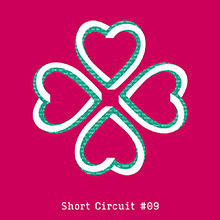My nephew flies a drone
over my grandparents' empty house,
over the orchard and empty barn,
...
[+]
It was a pleasant night, but an hour after curfew. City lights from Saigon to the east turned the dark a velvety purple, and the sweet smell of paddy shoots perfumed the air. Traffic had died and the sooty fumes of military vehicles had settled. A breeze gave the night a silky feel and I was taking my time walking from the main gate at Tan Son Nhut Airfield to my apartment off Le Van Duyet avenue.
The only sound was my footsteps crunching gravel at the highway edge, careful not to twist an ankle by slipping into the open culvert beside me. About five hundred yards ahead at the intersection was the Korean compound with its prison-yard lighting and rolled concertina wire barricade.
I knew I had to be alert when nearing it; the ROKs did not fool around. During the Tet Offensive four months earlier, a drunken American solider got his jeep stuck in those razor coils, began swearing, and the Koreans cut him apart with their machine gun. Their English was not particularly good, and they were not discerning after hours.
I had been at the airbase to see a movie and stayed for a beer in the bar. Even meandering leisurely, I would be at my room in twenty minutes.
A motorbike pulled alongside me, and its driver asked the usual question: "You go? Where you go?"
Such independent taxi services flourished, making fares off American GIs, and the best way to be rid of them was to ignore them—which I did. That's when he eased his ride to a putt-putt, keeping pace with my stride. About six feet ahead, he adjusted the accelerator with one hand and with the other one, he pointed toward me—holding something.
He was a teenager dressed in a short-sleeve shirt and tan chino pants. The light-colored clothing reflecting the night's glow illuminated his features. He smiled as he leaned back toward me. The object in his outstretched arm looked like a gun: a rectangular .45 caliber automatic pistol. But it was still too indistinct to be certain.
When I kept walking—not trying to run, dodge, or shout—he thought I didn't know it was a weapon. So, he lifted the gun in the air, where it caught the Korean spotlight rays, and held it high until I got a good look. Then he lowered it, pointing its barrel toward my stomach.
There was nothing to keep him from pulling the trigger. Although we were somewhere outside Foxtrot Sector, he would be long gone before anyone left the compound. Single night shots were common and drew little attention, anyway—certainly not from the Koreans.
I knew exactly where the bullet would hit: an icy dot soon to be ignited when the slug tore into my gut. I kept moving while my insides retreated to a flickering core: my Being's pilot light. I waited to die.
In the distance behind me, I heard the muffled engine of an approaching car. It must have been a hundred yards away because the headlight beam had not reached us. That driver, too, had stayed out after curfew and was traveling cautiously, slowly. Perhaps the motorist was drunk, or maybe he knew about the American soldier and the ROKs. But all that mattered right then was his being there.
The "cao boi" (cowboy) hoodlum glanced up at the oncoming car. Looked back at me. Smiled broadly. And stuffed the pistol into his belt.
As the youth vanished down the opaque highway, the sedan rolled past and toward the crossroad. And the night returned to its dreamy ambience while I, trembling slightly, continued home.


